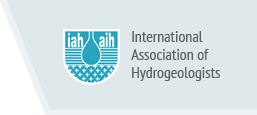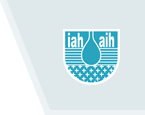Working Group: MAR for Sustainable Development
Leader
Prof Yan Zheng (Southern University of Science and Technology, Shenzhen, Guaongdong, China) yan.zheng@sustc.edu.cn
Aims
Initiated in the IAH MAR Plenary at ISMAR8, Beijing Oct 2013, the MAR for Development group aims to advance the policies and practice of MAR in developing countries by sharing relevant information. During ISMAR9, the aims expanded to include sustainable development through exchange of experiences between developing and developed countries.
Intended outputs
Based on these aims and the outcomes of the ISMAR9 workshop and survey, it was decided to produce a series of fact sheets on successful MAR projects that would include how the project started, a description of the project, its setting and its objectives, who worked on it, performance measures against those objectives, benefits, costs and conclusions. Where data on volumes and water quality are available these would be inserted in summary form, and references given to relevant technical reports. Such reports could potentially be web-mounted. This work would also be assisted by Working Groups on Global MAR Inventory and Economics of MAR. Publication of fact sheets and a synthesis document is likely on IAH-MAR site but other possibilities, including a UNESCO resource book will be considered. In January 2019, UNESCO agreed to produce a booklet on Exemplary MAR case studies, through the combined efforts of this Working Group, the economics of MAR Working Group, GRIPP and IGRAC.
Intended completion date
By ISMAR10, May 2019 (subject to volunteers contributing material on their sites).
How to contribute
Helpers are needed to provide information for example MAR sites in developing and developed countries. Please contact Yan Zheng.
Potential metrics to be covered, as indicators of sustainability :
- Duration of Operation (> 10 years)
- Reduction of Human Health Risks (Compared to Alternative Water Solutions at the Same Unit Cost)
- Enhancement of Ecosystem Protection (Compared to Alternative Water Solutions at the Same Unit Cost)
A conceptual analogue relating to health protection is:
Anderson, J., Adin, A., Crook, J., Davis, C., Hultquist, R., Jimenez-Cisneros, B., Kennedy, W., Sheikh, B. and van der Merwe, B. (2001). Climbing the ladder: a step by step approach to international guidelines. Water Science and Technology 43 (10) 1-8.
Activities to Date
- Harry Rolf to lead a discussion on low tech MAR in last session at ISMAR8 (Oct 2013).
- Together with China MAR Network run a workshop in Beijing, to develop a plan for improved guidance for MAR in China and establishing a series of demonstration projects (Sept 2015). One outcome is an article published on the China Water Risk website in 2016 entitled “China needs Managed Aquifer Recharge”
- Run workshop on MAR in developing countries at ISMAR9 and seek UNESCO support for developing country attendees (June 2016)
- Make contact with those already working in developing countries – successes and problems – and conduct a survey find out what they think is needed (undertaken at workshop June 2016) – A Survey of MAR for Sustainable Development ISMAR9 June 2016 Results
- What info do development banks need to invest in MAR? – This topic has been taken up within the reformed Working Group on Economics of MAR (led by Andrew Ross, who continues his involvement in this MAR for Sustainable Development Working Group)
Achievements
First 4 activities completed.


